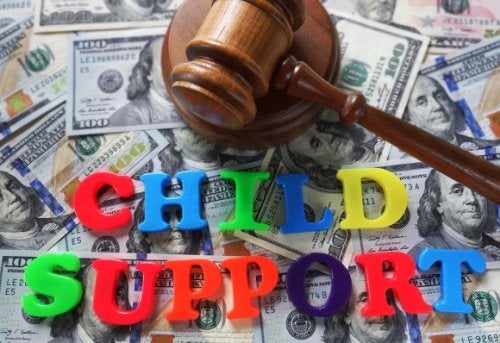-
What Is the Role of Children During the Custody Mediation Process?
Mediation is an effective alternative to court. During mediation sessions in Baltimore, a neutral third party helps parties who are at odds with each other explore the issues and discover mutually agreeable solutions. Mediation is useful for many situations, including family law matters such as child custody disputes. Even when parents have experienced significant breakdowns in communication, they may decide to attempt custody mediation in order to make the arrangements themselves, rather than entrust the custody decisions to a judge.

Children may have a limited role in custody mediation.
In most cases, children are not involved in settling custody disputes. Family law judges do not generally want to see minor children in the courtroom because of the significant stress this can inflict and the potential damage to family relationships. The same is true of custody mediation sessions. One of the goals of settling custody disputes is to avoid putting children in the middle; they should never feel as though they must choose one parent over the other. That being said, there may be some situations in which children can play a very limited role in custody mediation, provided that neither of the parents attempts to influence the children.
Children can aid in the identification of challenges.
Although children may not participate in the actual mediation sessions with all three parties, the mediator may decide to meet with the children separately to hold a low-stress discussion of the family situation. The mediator must be careful not to create a psychologically difficult situation for the children. Instead of asking a question such as, “Which parent would you rather live with?” the mediator might ask, “Who usually helps you with your homework?” The mediator might also prompt the children to identify challenges that may be settled during the mediation sessions. For example, a child might express concern about being able to participate in sports or other after-school activities despite the visitation schedule. The mediator can then bring these challenges into the mediation sessions and guide the parents in working toward solutions.
-
Preparing for Post-Divorce Mediation to Modify Child Support or Custody
It’s often expected that a divorce agreement will resolve family law issues beyond a shadow of a doubt. But in fact, many disputes can arise months or years after the divorce agreement was signed. For example, one party may wish to change the custody agreement or child support arrangement. If this applies to your situation, you can consult a mediation lawyer in Baltimore . He or she may recommend post-divorce mediation. Being well prepared for your mediation sessions can help you get the most out of them.

Gather Documents
Ahead of your first mediation session, you should gather together documents that are relevant to the case. Your lawyer can provide guidance on which specific documents or evidence will be useful for achieving your goals. For example, if you wish to increase the child support payments you’re receiving, you may need evidence that demonstrates that the child’s financial needs are increasing. These might include medical bills or receipts for extracurricular activities. Perhaps you wish to modify the visitation schedule. For example, you might argue that your child’s grades are declining because of the back-and-forth visitation during the week days. Gather together your child’s report card, progress reports, notes from teachers, and similar evidence.
Prepare Proposals
You likely already have a clear idea of what you would like to accomplish in post-divorce mediation. But it can be even more helpful to put your proposal into writing. For example, you might develop one or more alternative schedules of visitation. If you want your child with you during the entire week, you’ll need to be prepared to increase visitation during other times such as school vacations, holidays, and weekends. Understand that it’s unlikely that your proposal will be accepted exactly as is. However, it can provide a good starting point for the discussion.
Adjust Your Mindset
Before going into mediation, your lawyer may counsel you to adjust your mindset. Mediation is intended to resolve conflicts in a mutually agreeable way . It’s expected that parties involved with mediation may not be on the best of terms, but entering mediation with a confrontational mindset is counterproductive. Remind yourself that you’ll have to be willing to compromise to make progress. You might even identify areas where you’re willing to compromise before your session with the mediator.
-
How Can I Pay Child Support in Maryland?
Child support consists of monetary contributions paid by a noncustodial parent to the custodial parent to provide for a child’s daily needs. Following a divorce or paternity ruling, a judge will typically determine the amount of child support required in Baltimore using state guidelines that take into account income, healthcare costs, alimony payments, and other potential costs for daycare, schooling, and other daily necessities. Child support payments are made by the noncustodial parent to the custodial parent via wage attachment, which deducts the child support payment directly from the noncustodial parent’s paycheck. It is the noncustodial parent’s responsibility to ensure these payments are made on time, regardless of his current employment status, as well as if he becomes incarcerated or disabled. The custodial parent receives these payments directly, so long as she is not receiving Temporary Cash Assistance, or TCA. If the custodial parent is receiving TCA, child support payments are kept by the state and considered reimbursement for TCA benefits.

-
What Is Interstate Child Support Enforcement?
In family law, an interstate child support case refers to a support order between two parents who live in different states. For example, the custodial parent might live in Maryland and the noncustodial parent might live in Virginia. Sometimes, enforcing a child support order in Baltimore can be difficult when the other parent lives across state lines.
However, as you’ll learn by watching this video, all states have laws that allow for the enforcement of interstate child support orders. If the other parent does not pay his or her child support obligations, you can seek the counsel of a family law attorney. Your attorney may petition the court to enforce the support order. The court can take a number of enforcement actions, perhaps including issuing a wage garnishment order against the non-paying parent.
-
Preparing for a Custody Evaluation
When a child custody and visitation case is contested, the family law judge in Baltimore may order a custody evaluation. A custody evaluator will meet with each parent and the child, along with other relevant parties such as social workers and psychologists. Custody evaluators can also visit each home to make observances about family life. The end result is a written report that the family law judge will use when making a custody and visitation decision. If you’re anticipating a meeting with a custody evaluator, it’s important to sit down with your family law attorney and discuss what you should and shouldn’t do.

Talking to Your Child
The family law evaluator will ask to speak with your child. Many parents are unsure of how to inform their kids of the upcoming appointment. Depending on the age of your child, you could inform him or her that a psychologist wants to talk to him or her about living with mom or dad. However, it’s of the utmost importance to avoid coaching the child on what you want him or her to say. Not only will the family law evaluator be able to discern this, it will likely confuse your child and may have lasting psychological effects.
Knowing How to Answer Questions
Your attorney will likely advise you to practice good listening skills during your conversation with the custody evaluator . Pay attention to what the evaluator is asking you and answer only that question-nothing more. Answer truthfully about your current living situation and your background. If you’re not sure about a question, don’t hesitate to ask for clarification. The evaluator will appreciate your cooperativeness and willingness to get the facts right.
Discussing Sensitive Areas
It’s likely that the custody evaluator will ask you some sensitive questions, such as questions about your strengths and weaknesses as a parent. It’s best not to try to portray yourself as the best parent in the world-the evaluator will see through this. Similarly, try to resist the temptation to portray the other party as a completely incompetent parent. Do acknowledge the other parent’s strengths and weaknesses, and acknowledge the importance of your child having positive, ongoing relationships with both parents.
-
What Is a Children’s Trust?
A children’s trust can be a useful estate planning tool for families with small children. It allows parents to leave assets to children while controlling the age at which they have access to them. Your estate lawyer in Baltimore can help you decide if this kind of trust could be right for you.
With a children’s trust, benefactors assign assets to a trust for a child and identify a trustee to control the assets until the child reaches an age set by the benefactor. For instance, while estate planning, parents may decide to set up a trust for their toddler and name a close relative as the trustee. The trust says that the child cannot control the inheritance until they reach age 18. If both parents are deceased before the child reaches 18, he or she receives the trust but the trustee manages it as directed by the parents. If both parents are deceased after the child reaches 19, he or she receives the inheritance without the involvement of the trustee.
Children’s trusts put many parents’ minds at ease while estate planning. Your estate lawyer can guide you through the process of establishing your trust.

-
Should You Consider a Trust?
A trust is a financial tool often used during the estate planning process . When a trust is created, a third party, called a trustee, is given control of financial assets meant for an inheritor or beneficiary. During the creation of your trust, you and your estate lawyer serving Baltimore can choose the type of trust you want and determine the terms that must be fulfilled before your beneficiary gains control of the trust himself. In many cases, trusts are passed on to beneficiaries upon the settlor’s death or when the beneficiary reaches a certain age. Creating an irrevocable trust is an excellent way to reduce estate taxes after your death; furthermore, the property and assets that you place into a trust does not go through the probate process. These factors ensure that your chosen beneficiaries will receive the amount you wish them to inherit in full and much more quickly than if legal proceedings are needed to determine inheritance.

-
A Look at the Stepparent Adoption Process
When you form a new family through divorce and remarriage, your child’s remaining biological parent typically retains some measure of legal guardianship over your children. If your new spouse wishes to become a legal guardian for your child, you must complete a stepparent adoption to terminate the rights of your divorced partner so these rights can be transferred to your new spouse. Stepparent adoption may or may not proceed smoothly, depending on the opinions of the child’s biological parents; thus, it is always beneficial to seek the guidance of a family law attorney in Baltimore to guide you through the stepparent adoption process, especially if you anticipate a dispute that may require adoption mediation or a court investigation.

Seeking Parental Consent
To pursue a stepparent adoption in Maryland , the consent of both biological parents must be obtained. Thus, the first step in the stepparent adoption process is contacting the child’s additional biological parent regarding the adoption. If consent is given, the adoption may proceed unhindered. However, if the biological parent does not consent to the adoption, further steps must be taken if you still wish to pursue stepparent adoption.
Handling a Parental Objection
When a biological or legal guardian refuses to relinquish their guardianship rights, they may file an objection to the adoption process. Alternatively, the biological parent may simply fail to provide legal consent. When an objection is filed or consent is not given, the couple wishing to pursue stepparent adoption may seek a court investigation to show that stepparent adoption is in the best interests of the child. If the legal parent is determined to have been absent or neglectful with regard to his parenting responsibilities, his rights may be terminated and the stepparent adoption allowed to proceed. Alternatively, if the contesting parent does not meet the legal definition of a presumed father, his rights may also be terminated to allow for stepparent adoption.
Even if you expect a stepparent adoption to go smoothly, a family law attorney is your best resource for guidance and support during this process to reduce stress for you, your spouse, and your child.
-
The Benefits of Mediation in Child Custody Disputes
During a divorce, child custody is a particularly contentious issue. Clashes over custody can do lasting damage to the relationships between parents and children, especially when coming to an agreement involves nasty courtroom battles. Mediation offers an alternative that can be easier on families. Talk to a mediation lawyer in Baltimore if you are facing a child custody dispute to see if you could come to an agreement outside of the courtroom that works for your family. Here are some of the benefits to choosing mediation in your custody dispute.

Less Stress for Parents
Mediation is not adversarial, as disputes decided in the courtroom can be. The goal of mediation is for all parties to work together to come up with a solution that is right for everyone. There are no winner or losers in mediation, so the overall process is less overwhelming. A third-party representative will guide the mediation process and ensure that no one’s rights are violated, so you can focus on making an agreement instead of being on guard.
Less Stress for Kids
When parents are locked in a custody dispute, their animosity almost inevitably encroaches on their children’s well-being, even despite the best intentions. Kids may feel pressured to choose sides or may hear one parent talking disparagingly about the other parent, causing confusion and fear. Because mediation is easier on parents, it is also easier on kids. They may also get an outcome that is better for them, since the focus of everyone in mediation is to make a plan that is right for the children.
Improved Long-Term Cooperation
Mediation helps to set the tone for what the new normal will look like after a divorce. When parents cooperate during mediation and come up with a child custody plan they both feel good about, they walk away feeling encouraged about their abilities to co-parent even after divorce. This kind of cooperation sets the stage for future issues to be negotiated collaboratively rather than in an adversarial manner.

